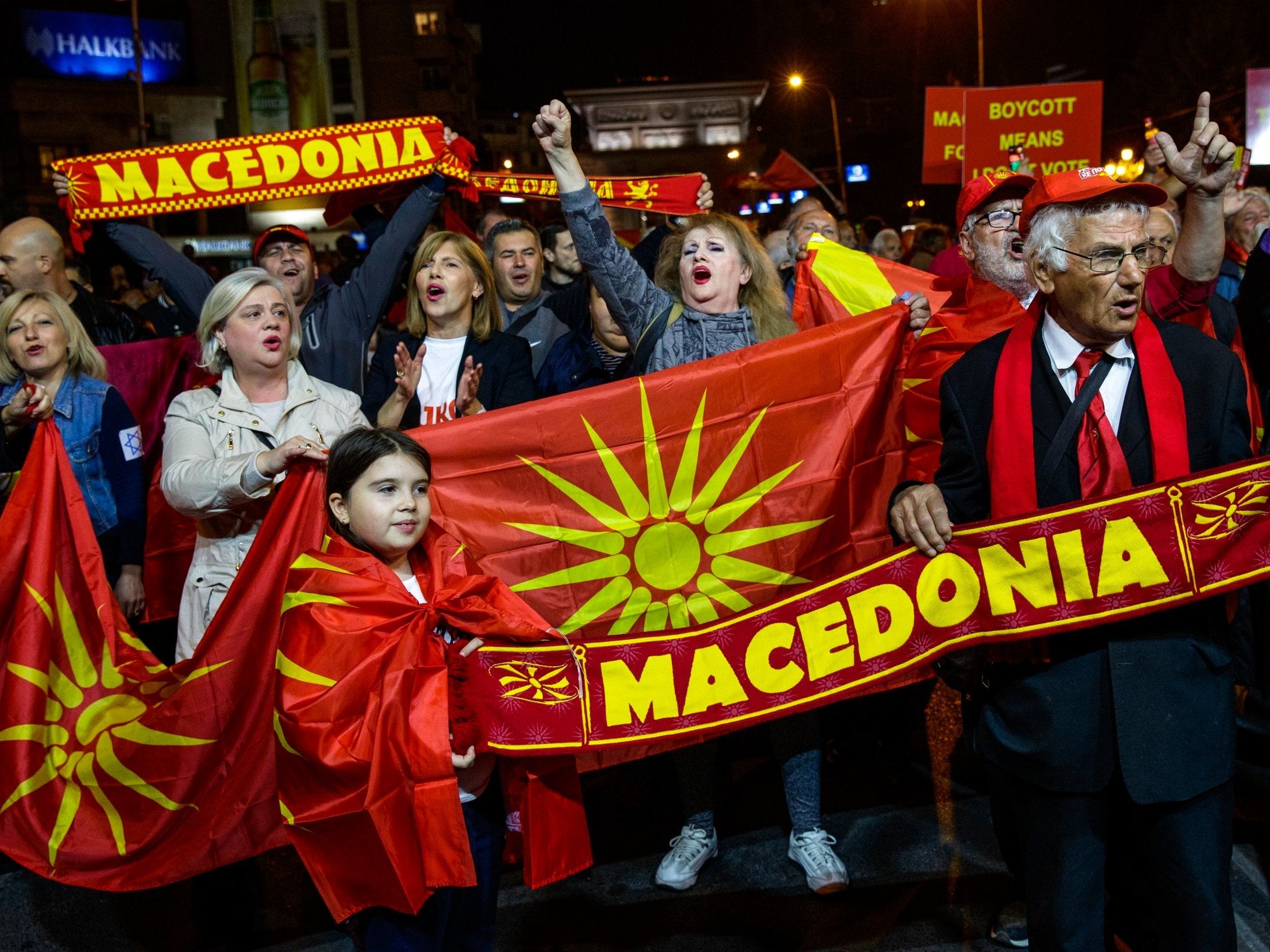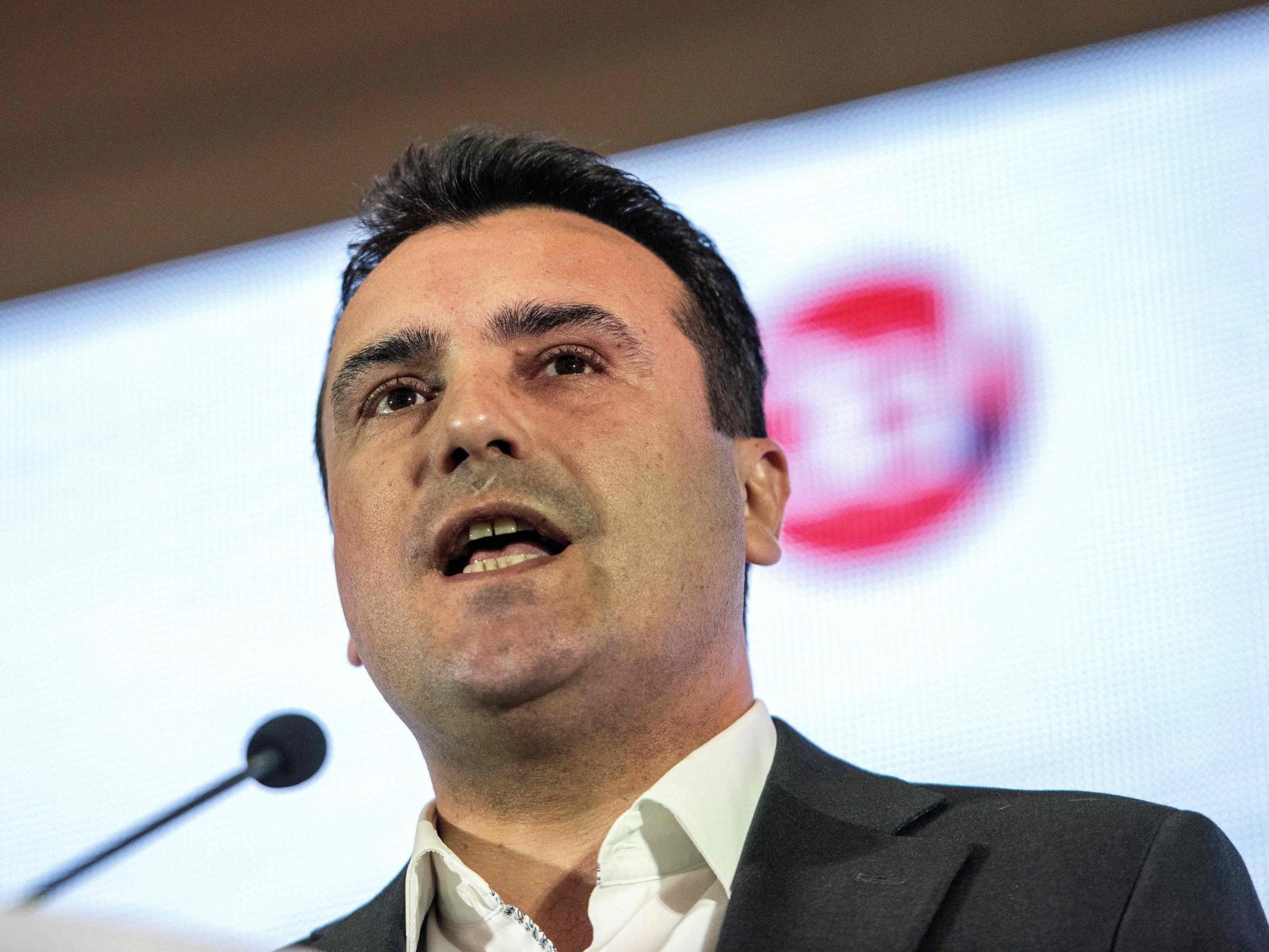Macedonian PM to press ahead with country name change despite referendum failing to reach turnout threshold
Result sent 'crystal-clear message' voters are in favour of agreement to end three-decade dispute with Greece, claims Zoran Zaev

Macedonia’s prime minister has vowed to press ahead with plans to change the country’s name despite failing to secure the required turnout in a referendum.
Zoran Zaev said the vote had sent a “crystal-clear message” that the public supported the proposal, which would end the former Yugoslav republic’s decades-old dispute with Greece and pave the way for it integrating more closely with Europe.
More than 91 per cent of ballots cast were in favour of the country being renamed North Macedonia, but only about 37 per cent of registered voters took part. A turnout of 50 per cent was required for the result to be valid.
The proposed name change is part of an agreement reached in June between the pro-West Mr Zaev and Greece, which has previously blocked its northern neighbour from joining Nato or the EU.
Athens argues Macedonia’s existing name implies a claim to the northern Greek province of the same name.
The proposed agreement would formally recognise Macedonian language and ethnicity, but with an explicit clarification that they are not related to the ancient Macedonians of Greece.
Opponents of the deal had called for a boycott of the referendum and claimed victory after election officials announced the 50 per cent threshold would not be reached.
“It is clear that the agreement with Greece has not received the green light from the people,” said Hristiajn Mickoski, leader of main nationalist opposition party VMRO-DPMNE.

The referendum was itself not legally binding, but MPs had pledged to abide by its result and the failure to reach the turnout threshold means they can now freely vote against the deal when it reaches parliament.
The nationalist opposition holds 49 seats in the 120-seat parliament, enough to block the two-thirds majority required to change the constitution.
Nevertheless, Mr Zaev declared the referendum a success. Addressing MPs, he made no mention of the turnout but said the votes of those who had backed the change must be respected.
“The people made a great choice and said ‘yes’ to our future. It is time for lawmakers to follow the voice of the people and to provide support,” the prime minister said.
Mr Zaev pledged to hold a vote in parliament on the name change and call an early election if MPs do not back it.
“I am determined to take Macedonia into the European Union and Nato,” he added. “It is time to support European Macedonia.”
The deal has faced vociferous opposition from a sizeable portion of the population on both sides of the border, with critics saying their respective governments had conceded too much to the other country.
The Greek foreign ministry noted the “contradictory” result of the referendum and said careful moves were needed to “preserve the positive potential of the deal”.
Even if Macedonia’s parliament approved the name change, the agreement faces further hurdles in Greece.
Panos Kammenos, the right-wing leader of government coalition partner Independent Greeks, has vowed to vote against the deal, leaving prime minister Alexis Tsipras reliant the support of on opposition parties and independent MPs.
Join our commenting forum
Join thought-provoking conversations, follow other Independent readers and see their replies
Comments